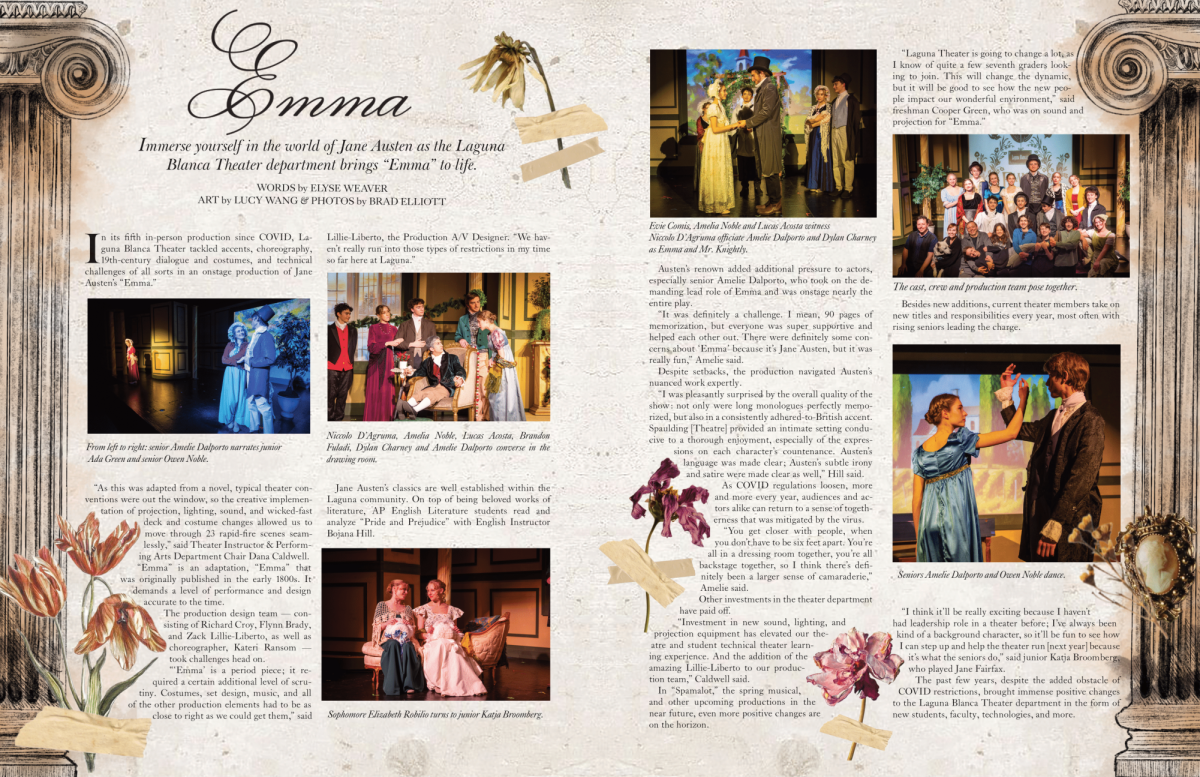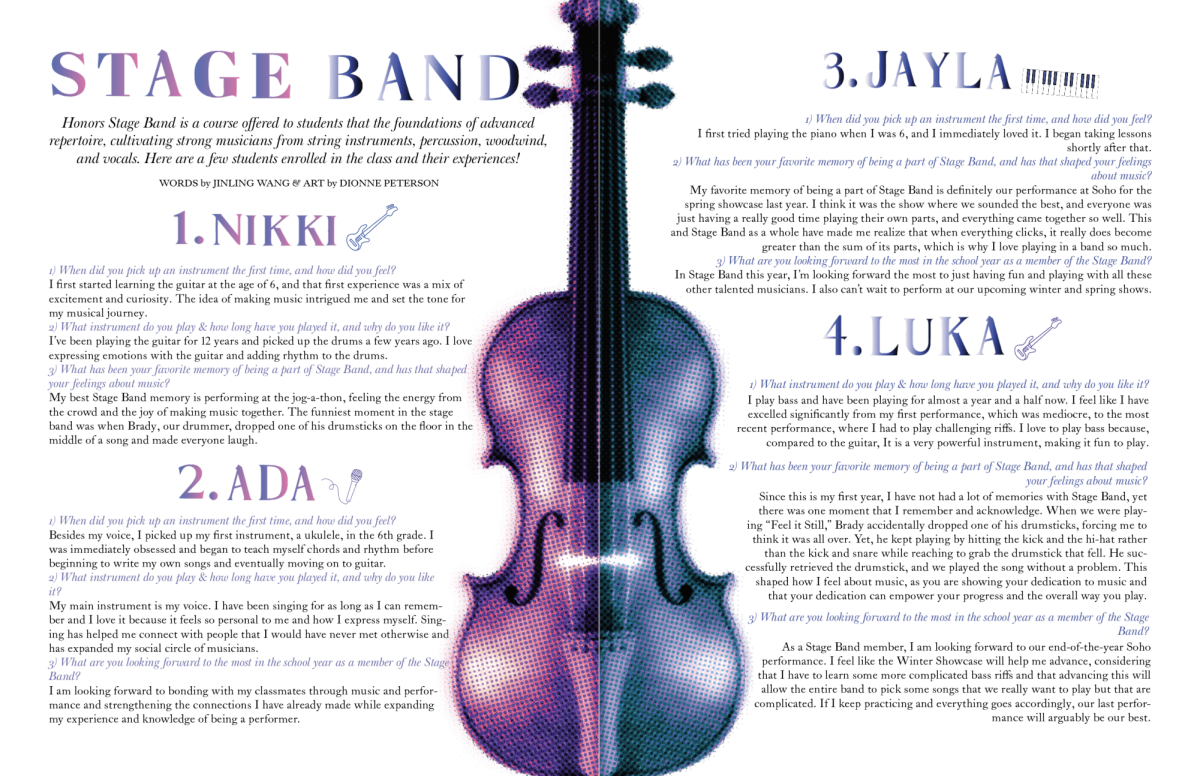Adolescence, the process of transformation from child to adult, has been replaced by a race.
It is a race for the ability to say you are the smartest in your class, the best at playing piano, the most creative, the hardest worker, the most distinctive.
The entire period of adolescence is about being able to categorize yourself and stretch your abilities to get into college.
Growing up is intended to be a time to figure out who you are, but a teenager does not even have time to think about something that he or she cannot put on his or her resume.
Working to the point of exhaustion in high school is supposed to allow you to have more options for your next step of education.
Moreover, you are expected to choose the most prestigious university you are accepted to to ensue your “success.”
Never mind happiness. Your financial “success” seemingly takes priority.
“Learning,” as defined by Dictionary.com, is “the act or process of acquiring knowledge or skill.”
However, in America learning has taken on a description solely described by numbers.
Education in America has become a sequence of cramming in order to reach a percentage or a letter grade. You are defined by this percentage or letter grade.
Teachers teach to have you pass the test. Students study to pass the test. Neither do so to learn.
Learning as a discovery process to expand your mind has become secondary to grades and test scores.
However, the teachers are not to blame for the lack of excitement and enjoyment that should be present in the learning experience.
Teachers are under pressure from schools to provide certain test scores or grades.
Those determined to fight, scrape and scramble up the ladder to the top tier of youth applying for college will spend four years of their lives taking many challenging courses, joining numerous clubs and doing community service.
They will stretch themselves so infinitely close to the point of crumbling, they are just barely breathing, treading water in the sea of activities they have drowned themselves in.
The finale of this marathon high-school experience is the college application process.
The application process is mastered with an elicit skill in being able to sell yourself to complete strangers as the most valuable applicant on the market.
But don’t worry, sleep, health, sanity and just general enjoyment of life are etched into a high-schooler’s planner somewhere below a day of school, sports practice, maybe a piano lesson, a mock trial meeting, studying for the SAT and maybe a few or more like seven hours of homework and studying.
In his article “Don’t Send Your Kid to the Ivy League,” William Deresiewicz stresses how most kids, especially those who leave their blood, sweat and tears in high school to claw their way to an elite university, often work so tirelessly to get where they’re going — where they are running or sprinting to — that they don’t even know where “there” is.
Deresiewicz received a Ph.D. in English at Colombia and worked for 10 years at Yale, but chose to write about the one day he spent serving on the Yale admissions committee.
He explains how the applicants are first given a score on a scale of one to four depending on their place in the social hierarchy, letters of recommendation, standardized test scores, grade point average and additional marks for diversity or legacy.
Those who scored ones were automatically admitted, and those with a ranking of a three or four only had hope to get accepted for athletics or if they were considered a “DevA,” an applicant in the tallest layer of “development.”
In other words, children of very philanthropic donors.
The task ahead of the admissions committee is then to sort through the piles of applicants given the ranking of a two to decide which have enough extracurriculars and letters of recommendation to thrive at the university.
Deresiewicz acknowledges how the younger generation of today does seem to be more specifically engaged, and, even though, “they are more apt to harbor creative or entrepreneurial impulses, [they are] played out within the same narrow conception of what constitutes a valid life: affluence, credentials, prestige.”
In order to not fall into the nearly inescapable entrapment of conformity, as in what others view as the only way to “succeed” in life, the only thing Deresiewicz said he can suggest is to attend a public university or liberal arts college, where he believes that a hint of what education as a beneficial institution still exists.
Erik Foust, teaching math for his first year at Laguna, runs his class in a manner where grades are completely secondary to learning the material.
In Foust’s class, test corrections are necessary and corrections of test corrections (if not completed with correct work and answers) are expected to be redone and reviewed until it is evident each student knows the material to its fullest extent.
Foust said that people have become too concerned with grades that they have forgotten that mistakes and failures are part of the learning process.
“If I can create a lively dialogue and healthy debate, while posing challenging problems that don’t threaten GPAs, then the students feel safe to take risks and push their boundaries. This is what creates a healthy learning environment where learning is emphasized more than grades.”
Back to this race. Everyone is running it. There are no bench warmers or injury leaves.
The only thing to do is to keep running.
However, don’t do so in a way where you are forced to work towards how society defines “success.”
Work towards how you define happiness.











Anonymous • Jan 20, 2015 at 3:07 PM
Really awesome article. I agree that it’s a very hot topic!